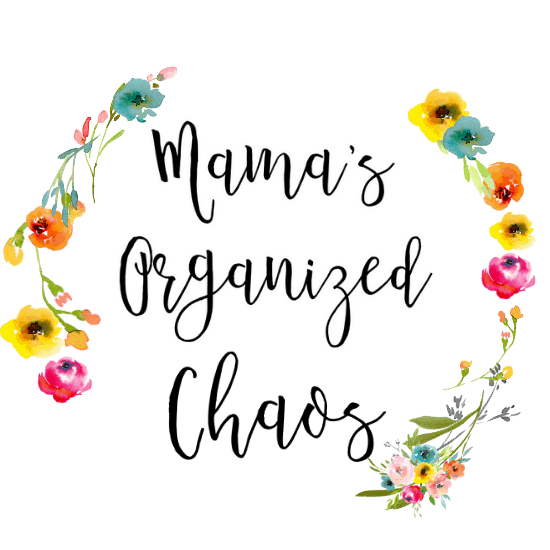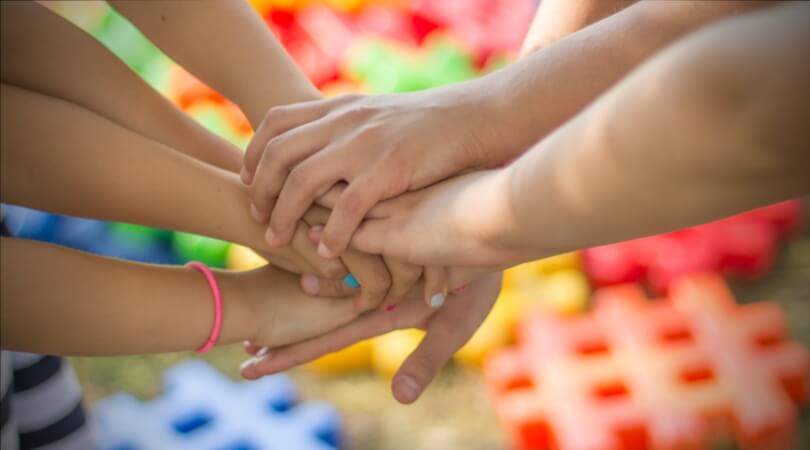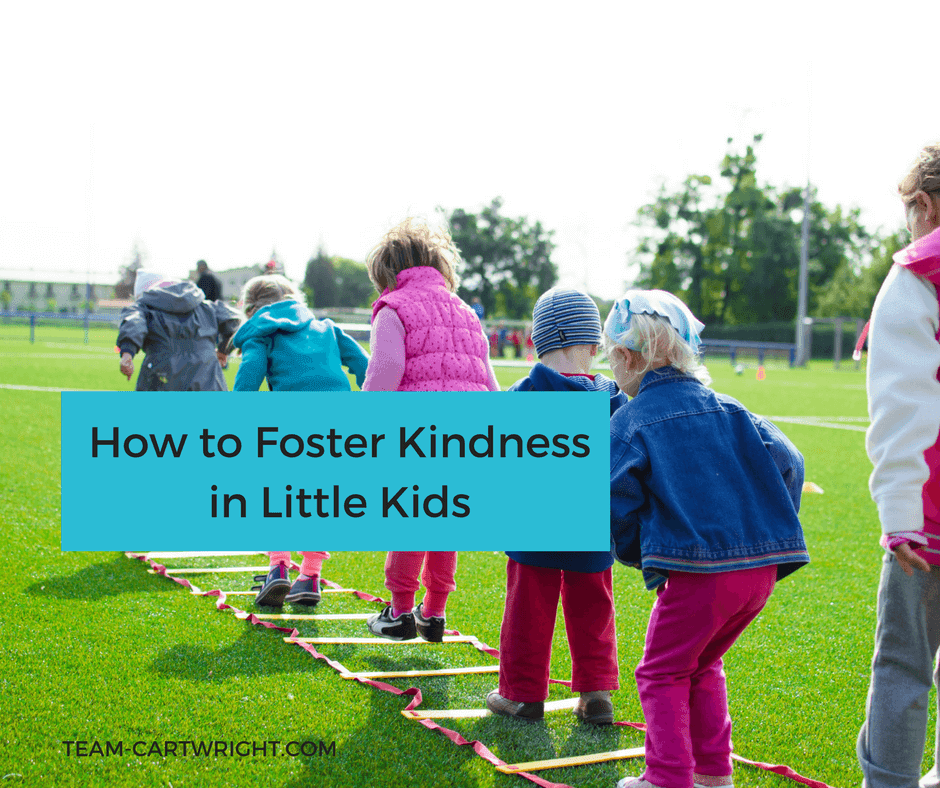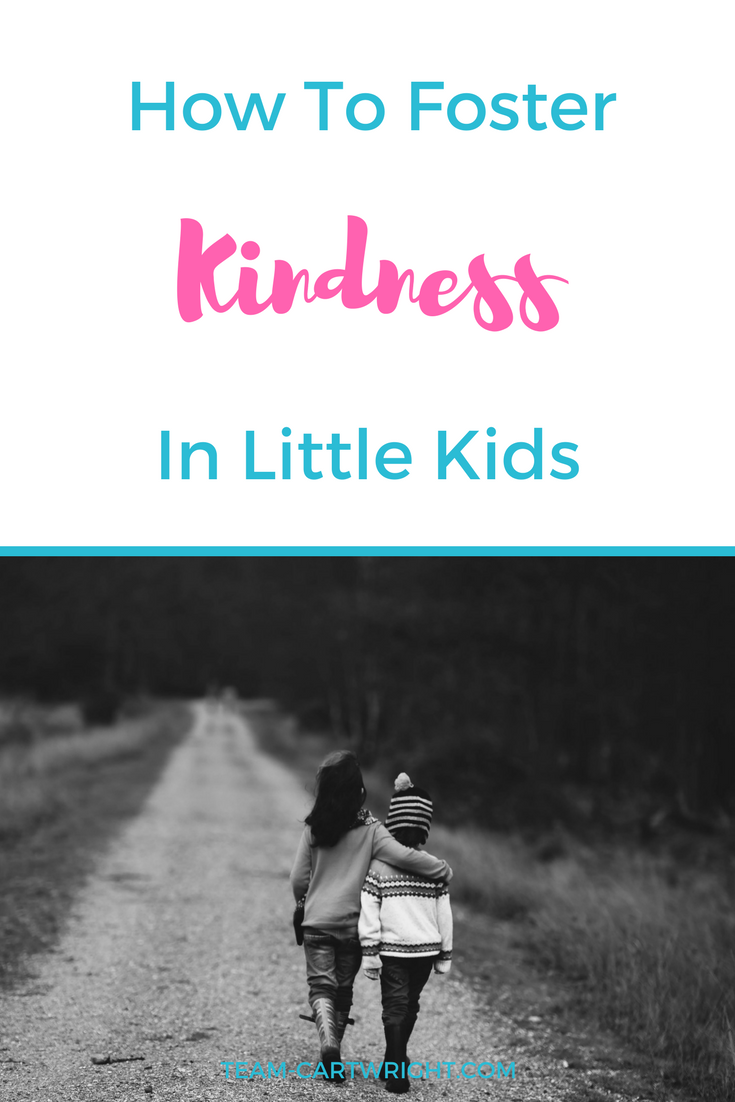I always love discussions and posts about how to instill the quality of kindness in our children. Kimberly from Team-Cartwright.com, has put together a guest post on the subject, and I couldn’t agree with her ideas more!
Kindness. It’s an interesting topic when you think about it.
What does being kind mean? My four-year-old son recently asked me that,
and I was surprised when it was hard for me to come up with an exact
answer. I can give examples of kindness, and I can point out unkind
happenings. But really defining it eluded me. So, of course, I
looked it up in the dictionary. The definition basically included being
gentle, nice, and wanting to do good. That was a good start. But I
feel strongly that showing kindness is so important. So how do you foster
kindness in little kids?
Why?
Why does explaining kindness matter? Well quite frankly, take a look
at the world around us. Without getting into a rant let’s just say a
little kindness goes a long way. Why bother teaching our kids about
kindness? It kinds of feels like it should be an innate thing. I
mean, why be mean to anyone? Kindness is so much more than just being
nice though. It is a part of compassion, empathy, looking out for others,
politeness, having a servant’s heart, respect for others and more. Kindness
is a part of most basic good things in the world. It is a simple little
word, but it holds so much meaning.
My son Ben is naturally kind. (Warning, mom brag ahead.) One of
my proudest mom moments to date with him came when I was talking with his preschool
principal. She said to me, “Ben is just a kind kid.” My mama
heart sang. I was so happy that my little guy was behaving the way I had
hoped. And I also knew I wanted to encourage this behavior. Life
makes it really easy to not be kind, and sadly it seems acceptable at
times. I know Ben is going to make mistakes and be unkind at times.
He’s only four. He needs to test limits and learn that his actions have
consequences. But while I know and encourage him to learn, I want the
base message to be the same. Kindness matters. Be kind.
How?
So how do I do this? Why is it the simplest things seem so hard?
I wish I could say I had the magic answer to keep kindness in your child’s
heart forever. Like all things with parenting, it is an ongoing process.
But I have six main areas I am focusing on.
Books/Movies
When I don’t know what to say, chances are there is a book out there that
does. And in language that my child understands. Somehow messages
sink in better when they don’t come from Mom in our house too. Daniel
Tiger is an automatic go to. (Is there anything that tiger cub can’t help
with?) You don’t have to limit yourself to books and shows focusing
solely on kindness. I try to point out kind actions in any show we
watch. Little things, like see how that character helped his friend when
he fell down. Or notice how those friends spoke encouragingly to each
other when they were scared, they didn’t make fun of each other. Children
relate to the characters in books and shows, they want to be like them. I
try to utilize that by pointing out the positive kindness.
Real Life Examples
Real life is full of examples, good and bad, of kindness. I just look
around and see how people around us are behaving. Now, I’m not trying to
be the kindness police or anything. My goal isn’t to teach Ben to notice
when other people are acting like jerks. But notice the little
things. When we see someone hold a door open for someone else I point it
out, telling Ben how it is polite and kind. When the teller at the bank
gives Ben a lollipop, that was kind of them. Real life examples happen at
home too. Ben’s little sisters will bring each other their lovies when
one cries. That is kindness right there.
Catch Him Being Kind
I try to catch Ben being kind. When I first thought to do this I was
worried there wouldn’t be many times. You know what? I was
pleasantly surprised. He did so many little things I had overlooked
before. Giving toys to his sisters, helping set the table without being
asked, saying have a nice weekend to his teachers. We don’t need grand
gestures to be kind. Pointing out these behaviors really boosted Ben’s
confidence and I think it really helped the message sink in. We didn’t do
anything big for these actions. Being kind is the expectation, not
something we seek a reward for. But the acknowledgment alone was enough.
Role Play/Ask Questions
I have heard that a good way to work through situations with kids is to have
their toys or dolls act it out. Role play a bit. I think this is a
great idea. The one drawback for us is that Ben doesn’t really get into
this sort of play. No biggie, I just ask questions. Pop quiz
style. (Or in normal conversation, both ways work.) Sometimes I go
over real-life situations. If he acts out towards his sisters, part of
the talk after the timeout is about what would the kind response look
like. Instead of taking the toy from his sister, what would the kind
thing be to do? I also ask him what would the kind thing be to do if he
saw a classmate looking sad? What would he do if he saw a child playing
alone on the playground? Should he help his teacher clean up? Just toss
out some what-ifs and try to lead the conversation towards kindness.
Point Out When I Am Unkind
This is a tough one, but I will admit I am not always kind. I try to
be, but I’m human. I mess up. But I do try to own up to that.
When I mutter about another car in traffic, that is unkind. If Ben is in
the car I know he notices, so I try to stop myself and say out loud ‘Wow, that
was unkind of me. I’m sorry.’ I don’t try to justify it, and if the
situation warrants I’ll go into what I should have done. How is this
helpful? Well, I think it really helps kids when they see us fall short
of expectations for two main reasons. One, it shows them that we are
human and mess up too. Kids feel pressure, and no one needs the pressure
to be perfect all the time. Two, it shows them how we bounce back from
our mistakes. We all make wrong choices in life, there is no avoiding
that. But what happens after? Do we just let our mistake sit there?
Do we keep making the same mistake over and over? Or do we learn, try to
make amends if appropriate, and do better in the future? I want my
children to know that even if you do something wrong, you can learn from that
and do better next time.
Talk
This goes along with all the other methods listed above. Just keep
talking. It is so easy to feel like what we say to our children goes in
one ear and out the other, but they hear us. So keep talking. Even
when they are tantruming. Even when they seem like they are just
parroting back what you want to hear. (A skill they seem to acquire quite
young.) Even when they keep pushing boundaries and you think you are wasting
your breath. Keep talking. Consistency is king with kids,
right? If you make kindness a daily focus, a family value, and just
something worth mentioning, it will sink in that kindness matters.
Kindness seems like a simple thing. Sometimes I worry it comes across
as a weakness, that one is kind means that one is a pushover. But no, it
is a strength. It is something we all need to focus on. My hope is
to foster my son’s naturally kind heart and help it become a core strength in
his life.
-Kim
Kim is the mother of a 4-year-old son and 2-year-old twin daughters.
She blogs at Team-Cartwright.com
and you can follow her on Facebook and Pinterest.



